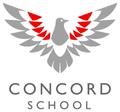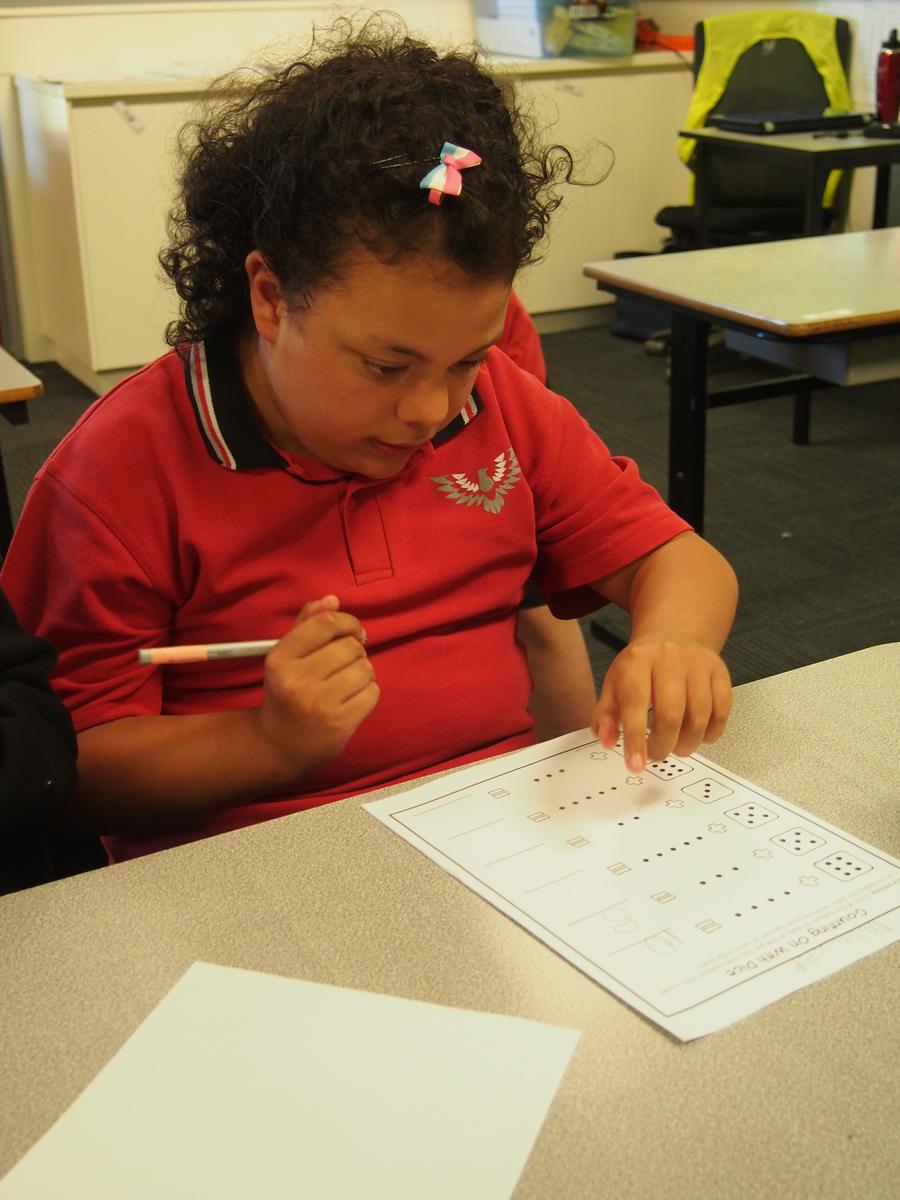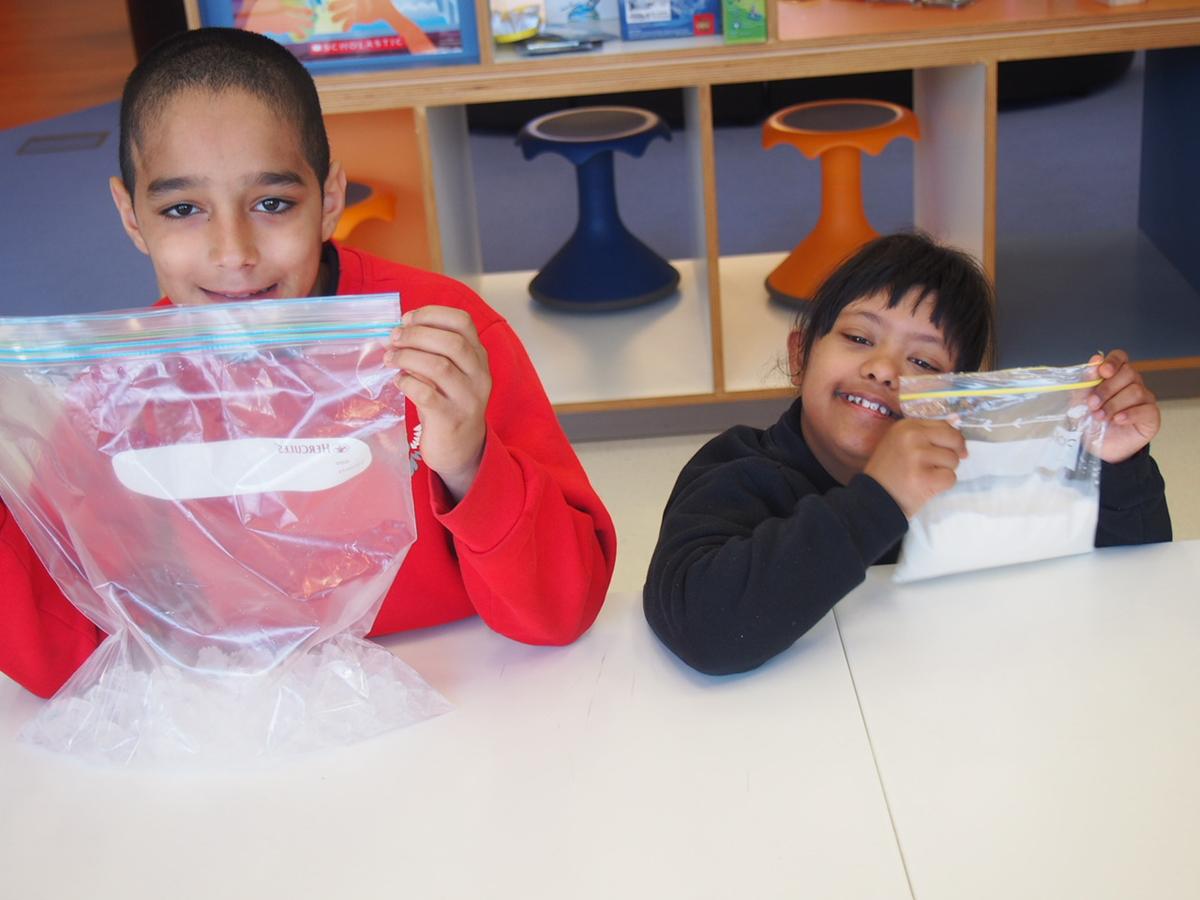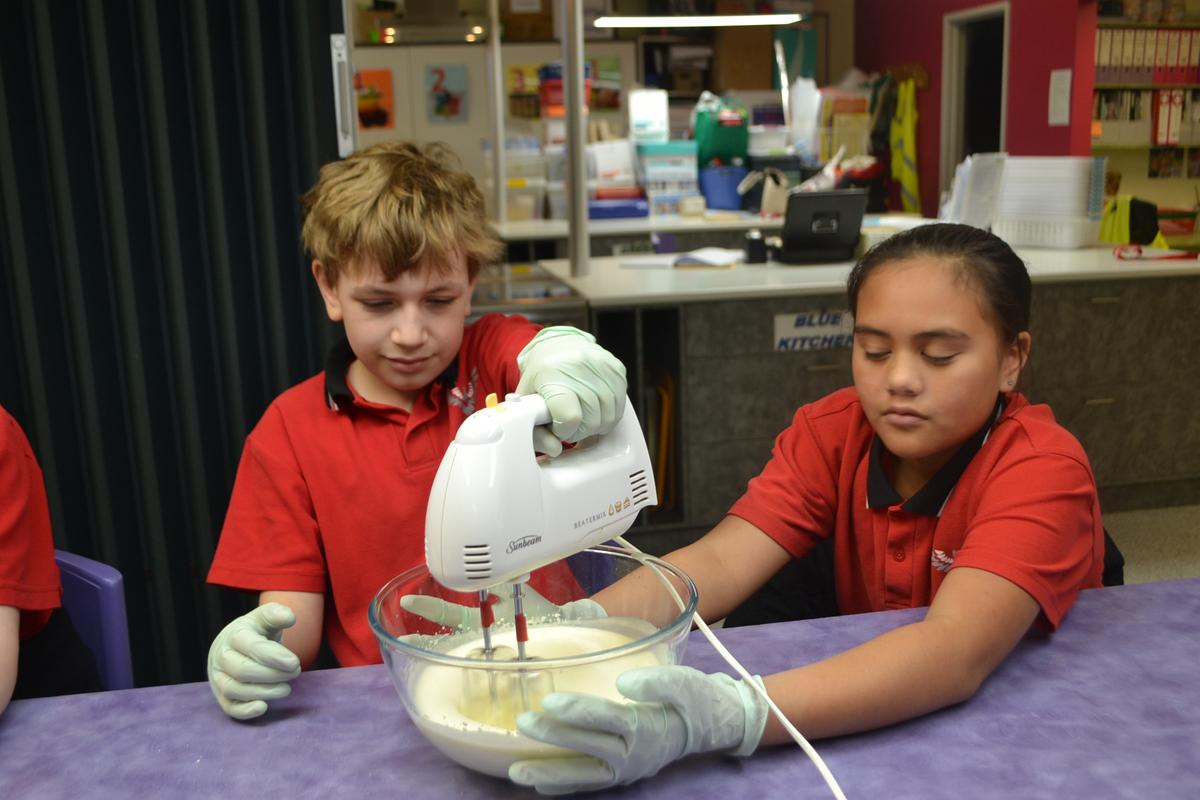Upper Primary Learning
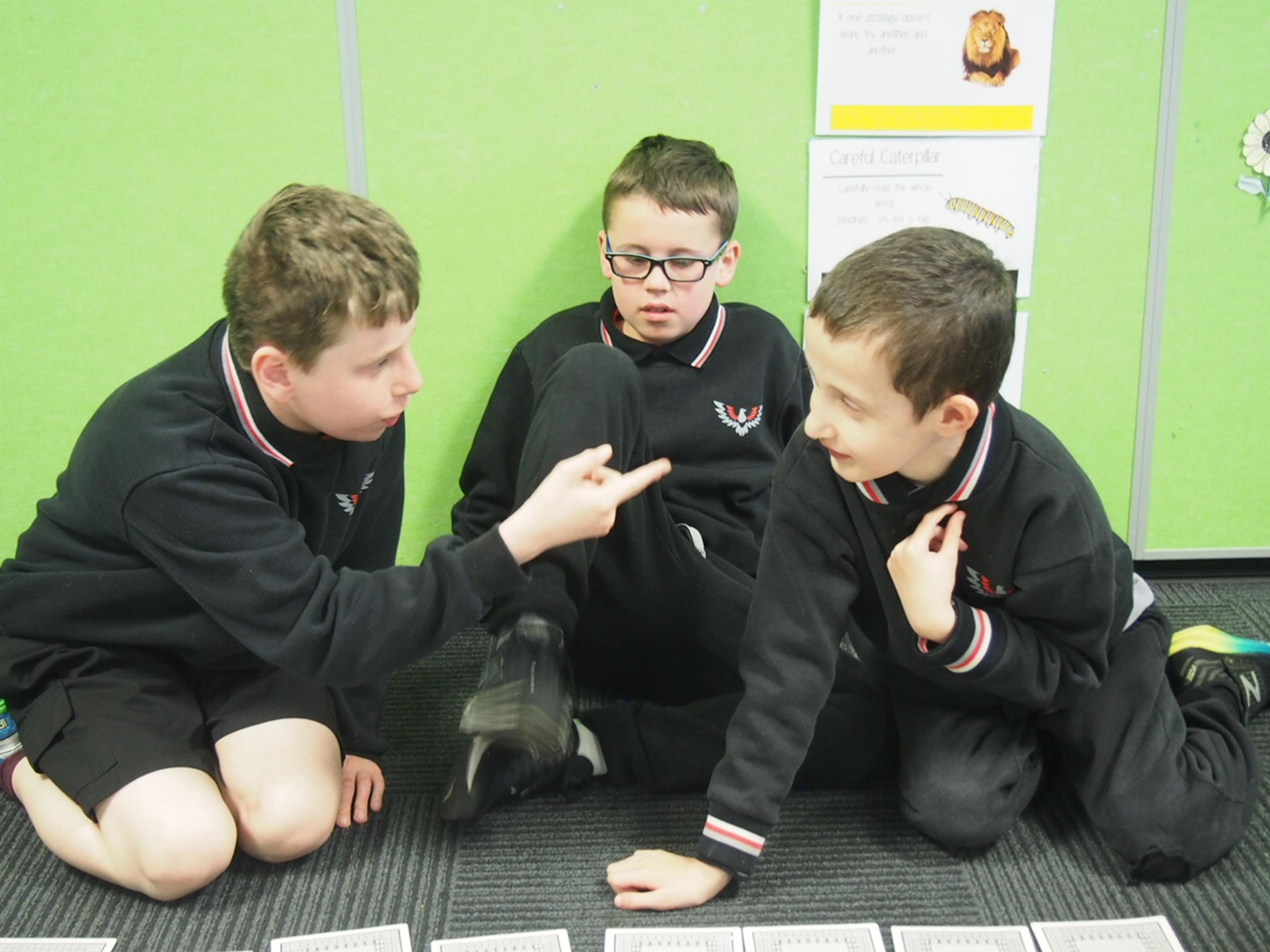
Welcome
Welcome to Carla who recently joined PSP and Tamsyn who started in PJT last week. We are delighted to have you as part of the Upper Primary Section.
The first half of term has been busy with a variety of incursions and excursions. Some of the highlights so far include the Primary Sports Day co-ordinated by the VCAL students, the excursion to the Yarra Valley Chocolaterie and the School Walk-a-thon.
English
Over the past couple of weeks the students have been revisiting "Comprehension Strategies" as part of the "Reading and Viewing" curriculum. Comprehension is the process in which the reader intentionally thinks about the text they are reading to construct meaning. Students have been exploring both literal and inferred meaning to deepen their understanding of texts read.
Literal comprehension is the understanding of information and facts that are directly stated in the text. Some of the strategies the students have been learning to use to support the development of literal comprehension include:
- Picture Information – exploring images and interpreting the information they contain.
Activities have included picture walks where students are familiarised with the story prior to reading, discussing photographic images and using wordless texts to focus on the story that the images convey.
- Key Words – locating words in the text that hold the most meaning.
This has involved students identifying and highlighting key words in texts.
- Retell – is the process of telling the important parts of the story in sequence.
Students have used pictures to sequence the order of events from the text and used these picture prompts to tell important parts of the story.
- Skimming/Scanning – quickly reading through the text to identify the main idea.
Students have explored features of texts such as headings, pictures, diagrams, captions and first and last paragraphs of the text to determine the main idea.
Inferred comprehension is the ability to process written information and understand the underlying meaning of the text. Activities that the students have been involved in include:
- Making Connections – using personal connections to make connections between the text and the readers own experiences.
Through guided questioning and class discussions students have been supported to draw upon their own experiences to connect with the text before, during and after reading.
- Predicting – using clues and personal experiences to think about what might happen in the story.
Students have been exploring images, key words and using prior knowledge of the topic to anticipate what might happen in the text. After reading students have revisited the text to check the accuracy of their predictions.
- Visualising – creating pictures in their mind or making a mind movie to remember what they read or hear.
Discussions have focussed on thinking about what students know about the text before they read, using sensory details to create mental pictures and thinking about the images they have created to remember what has happened.
Students have been busy finalising their information reports. Over the past two weeks they have worked through revising, editing and publishing their writing piece. Revising has involved revisiting the ‘draft’ to add more interesting language, remove words or sentences that are no longer needed, and moving sentences and words around to help improve the flow of the writing. During the editing phase students have checked for punctuation and spelling. Publishing was a highlight for many of the students where they used software programs to make a final copy of their report.
The following information report was written by the students in PCS.
Gorillas
Introduction
Gorillas are apes.
Description
Baby gorillas live with their mums for 5 months.
Gorillas can roar or growl when they get mad and they can purr when they are happy.
Gorillas eat leaves and vegetables.
Daddy gorillas live for 35 years.
Gorillas grab their food and wash it just like humans.
Gorilla’s arms are bigger than their legs.
Gorillas live in the Rainforest.
Conclusion
Gorillas are endangered animals so we need to keep them safe.
Mathematics
This week students in Upper Primary have started working through an addition moderation task. The task is an opportunity for the students to show what they have learnt about addition over the past few weeks and discuss strategies they use to solve problems with their teacher. The task will become part of the student’s assessment portfolio.
Classes have finished exploring time. Over the past few weeks classes have engaged in a variety of activities such as:
- Sorting images according to time of day (morning, afternoon, night)
- Using schedules to record the order of activities
- Using calendars to track the days of the week
- Sequencing the days of the week
- Matching activities to specific days of the week
- Making clocks
- Reading and making analogue and digital time on clocks
Social Competencies
This term we have started by looking at healthy foods to link in with our medicine unit. Students have explored how eating a mix of healthy foods can help to keep them healthy each and every day.
Students made a food pyramid to explore the food groups such as sugars and fats, protein, dairy, fruits and vegetables and grains.
I have loved teaching all the Upper Primary students about how to be safe with medicine and how to be healthy every day. Well done Upper Primary!
Integrated Unit
PKO
Last Tuesday PKO went on an excursion to the Yarra Valley Chocolaterie to look at the process of chocolate making. Prior to this, we had researched facts and written an information report about the process. The excursion was great to reinforce what we had been learning in the classroom. All students tasted a variety of chocolate and some even declared that the dark chocolate was their favourite!
Back in the classroom, students have continued to work on their projects in preparation for Presentation Night.
In PJT, students are working on their chocolate design details after the visit to the Chocolaterie. They had a wonderful time looking at the work done at the "Chocolate factory". Students are making lists of ingredients and working together on the method for making their chocolate bars in week 5.
PJF
The students in PJF attended the excursion to the Chocolatier. They tasted lots of different flavoured chocolate and heard about how chocolate is made. Everyone had their own favourite. The students then watched as chocolates were being made on a conveyer belt. To end a wonderful excursion the students had a chocolate fondue tasting. The students dipped different foods e.g. apple, strawberries, banana, marshmallow, peanut brittle, into four different chocolates. There were lots of chocolate faces by the end of the tasting. A great day was had by all.
PDJ
The students of PDJ thoroughly enjoyed our excursion to the Chocolatier in the Yarra Valley. The students were able to taste test a variety of different chocolate, such as passionfruit, cookies and cream, strawberry and orange. Some students were even brave enough to sample the lime and chilli chocolate. The students listened to a presentation of how chocolate is made and were able to look at real cocoa pods from the cacao tree and taste the cocoa beans before they get turned into chocolate. After this the students were treated to a delicious fondue with dark and milk chocolate, including honeycomb, apple and marshmallows. The aim of this excursion was to see how chocolate changes during the different processes, such as solid to melting. The students had a wonderful time and have written an information report about chocolate.
PMB have been having discussions about when water is added to flour and the type of consistency it can produce. They are really looking foward to making some pancakes very soon !
PSP and PCS have been working on their Information Reports on chocolate for presentation They have night. have tasted different types of chocolate and researched where chocolate comes from. We have watched videos about how chocolate changes when exposed to heat and discussed how chocolate melts and can reset in a different shape.
Focus on Fun
Scholastic Story Starters is a free online program that generates ideas for creating writing. The themes include Adventure, Fantasy, Sci-Fi and Scrambler (random combinations).
How it works:
-Select your theme and ‘spin’ to reveal key elements to be included in the story
-Move onto to the format page and select from notebook, letter, newspaper article or postcard.
-Create you story and add a drawing using the drawing tools. The story can be downloaded to a device or printed.
www.scholastic.com/teachers/story-starters/fantasy-writing-prompts/
Chris Norman - Upper Primary Team Leader
Kirsten Coulter - Teaching and Learning Coordinator
